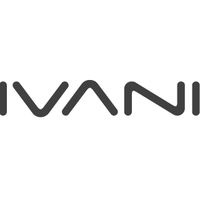The AI Race: Navigating the Challenges of Implementation and Governance
May 7, 2025, 9:53 am

Location: United States, New York
Employees: 51-200
Founded date: 2013
Total raised: $39M

Location: United States, Washington, Seattle
Employees: 201-500
Founded date: 2016
Total raised: $187M
Artificial Intelligence (AI) is no longer a futuristic concept. It’s here, and it’s reshaping the business landscape. Companies are racing to integrate AI into their operations, but the journey is fraught with challenges. Recent reports highlight the growing pressure on organizations to not only adopt AI but to do so effectively.
Flexential’s 2025 State of AI Infrastructure Report reveals a significant shift in how companies approach AI. C-suite executives are now at the helm of AI initiatives, with 81% of leaders acknowledging their role in driving these projects. This is a dramatic increase from just 53% a year ago. The urgency is palpable. Companies are not just experimenting; they are embedding AI into their core operations.
However, this enthusiasm comes with a caveat. Nearly one-third of IT leaders feel overwhelmed by the demands of AI implementation. This figure has more than doubled in a year, rising from 12% to 29%. The rapid pace of AI integration is pushing organizations to their limits. They face a myriad of challenges: integrating advanced technologies with existing systems, managing cybersecurity risks, and addressing skills shortages among technical teams.
Despite these hurdles, optimism remains high. Seventy-five percent of respondents express excitement about their AI projects. Confidence in executing AI roadmaps has surged to 71%, up from 53% last year. This enthusiasm is crucial as organizations recognize the competitive edge AI can provide.
The report also underscores the importance of long-term planning. Sixty-two percent of respondents are now looking one to three years ahead for their IT and data center needs. This foresight is essential. Without it, companies risk falling behind as competitors secure the resources necessary to scale their AI capabilities.
In parallel, ModelOp’s 2025 AI Governance Benchmark Report sheds light on another critical aspect: governance. The report reveals that many enterprises struggle to bring AI initiatives to market efficiently. A staggering 56% of generative AI projects take between six to eighteen months to move from idea to production. This delay is often due to fragmented systems and inconsistent governance practices.
Eighty percent of enterprises have numerous generative AI use cases in the proposal phase, yet only a handful make it to production. This disconnect highlights a significant gap between ambition and execution. Companies are investing heavily in AI, with global spending projected to reach $631 billion by 2028. Yet, many are left grappling with operational challenges that hinder their progress.
The findings indicate that 58% of enterprises cite fragmented systems as a major barrier to effective AI governance. Without a cohesive strategy, organizations risk inconsistent reporting and duplicated efforts. This is where governance becomes vital. It’s not just a bureaucratic hurdle; it’s a necessary framework for scaling innovation.
Interestingly, 36% of enterprises have allocated over $1 million annually for AI governance software. This trend signals a growing recognition of the need for structured oversight in AI initiatives. Early adopters of governance practices often see faster deployment and better returns on investment.
The pressure to demonstrate ROI is mounting. Executives must show that their AI investments yield tangible results. This demand for accountability is driving organizations to embed governance from the outset, rather than treating it as an afterthought.
The stakes are high. If organizations fail to meet their AI goals, they risk losing market share and delaying product launches. Twenty-eight percent of survey participants believe that falling short on AI initiatives could lead to a competitive disadvantage.
As companies navigate this complex landscape, they must balance ambition with execution. The successful organizations will be those that build robust, scalable foundations to support their AI endeavors. This requires not only technological investment but also a commitment to governance and strategic planning.
In conclusion, the AI race is on. Companies are eager to harness the power of AI, but the path is littered with challenges. From overwhelmed IT teams to fragmented governance, the obstacles are significant. Yet, the potential rewards are immense. Organizations that can effectively integrate AI into their operations while maintaining strong governance will emerge as leaders in their industries. The future belongs to those who can turn ambition into action, and innovation into impact.
Flexential’s 2025 State of AI Infrastructure Report reveals a significant shift in how companies approach AI. C-suite executives are now at the helm of AI initiatives, with 81% of leaders acknowledging their role in driving these projects. This is a dramatic increase from just 53% a year ago. The urgency is palpable. Companies are not just experimenting; they are embedding AI into their core operations.
However, this enthusiasm comes with a caveat. Nearly one-third of IT leaders feel overwhelmed by the demands of AI implementation. This figure has more than doubled in a year, rising from 12% to 29%. The rapid pace of AI integration is pushing organizations to their limits. They face a myriad of challenges: integrating advanced technologies with existing systems, managing cybersecurity risks, and addressing skills shortages among technical teams.
Despite these hurdles, optimism remains high. Seventy-five percent of respondents express excitement about their AI projects. Confidence in executing AI roadmaps has surged to 71%, up from 53% last year. This enthusiasm is crucial as organizations recognize the competitive edge AI can provide.
The report also underscores the importance of long-term planning. Sixty-two percent of respondents are now looking one to three years ahead for their IT and data center needs. This foresight is essential. Without it, companies risk falling behind as competitors secure the resources necessary to scale their AI capabilities.
In parallel, ModelOp’s 2025 AI Governance Benchmark Report sheds light on another critical aspect: governance. The report reveals that many enterprises struggle to bring AI initiatives to market efficiently. A staggering 56% of generative AI projects take between six to eighteen months to move from idea to production. This delay is often due to fragmented systems and inconsistent governance practices.
Eighty percent of enterprises have numerous generative AI use cases in the proposal phase, yet only a handful make it to production. This disconnect highlights a significant gap between ambition and execution. Companies are investing heavily in AI, with global spending projected to reach $631 billion by 2028. Yet, many are left grappling with operational challenges that hinder their progress.
The findings indicate that 58% of enterprises cite fragmented systems as a major barrier to effective AI governance. Without a cohesive strategy, organizations risk inconsistent reporting and duplicated efforts. This is where governance becomes vital. It’s not just a bureaucratic hurdle; it’s a necessary framework for scaling innovation.
Interestingly, 36% of enterprises have allocated over $1 million annually for AI governance software. This trend signals a growing recognition of the need for structured oversight in AI initiatives. Early adopters of governance practices often see faster deployment and better returns on investment.
The pressure to demonstrate ROI is mounting. Executives must show that their AI investments yield tangible results. This demand for accountability is driving organizations to embed governance from the outset, rather than treating it as an afterthought.
The stakes are high. If organizations fail to meet their AI goals, they risk losing market share and delaying product launches. Twenty-eight percent of survey participants believe that falling short on AI initiatives could lead to a competitive disadvantage.
As companies navigate this complex landscape, they must balance ambition with execution. The successful organizations will be those that build robust, scalable foundations to support their AI endeavors. This requires not only technological investment but also a commitment to governance and strategic planning.
In conclusion, the AI race is on. Companies are eager to harness the power of AI, but the path is littered with challenges. From overwhelmed IT teams to fragmented governance, the obstacles are significant. Yet, the potential rewards are immense. Organizations that can effectively integrate AI into their operations while maintaining strong governance will emerge as leaders in their industries. The future belongs to those who can turn ambition into action, and innovation into impact.

